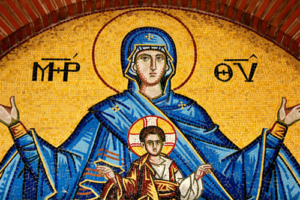As we delve into history, we find various cultures and religions expressing concerns about the end of time. Aethelred II, a ruler from 978-1016 AD, believed so strongly that the world would end in 1000 AD that he replaced his portrait on coinage with the Christian symbol of the lamb. When the world did not meet its demise, he reinstated his portrait the following year. This begs the question: why does the notion of an impending end persist in Western society?
At Extreme Investor Network, we explore the impact of economic downturns on religious and societal upheavals. While our model does not incorporate religion or astrology into forecasting, we find the prophecies of various religions fascinating.
In Western culture, we often view everything linearly. However, biblical texts like Revelations 20 outline cyclical patterns, suggesting a 6,000-year cycle followed by 1,000 years of rest. While interpretations vary, historical events like Y2K and the Mayan calendar’s conclusion demonstrate the enduring fascination with cataclysmic predictions.
Erroneous interpretations can trigger significant consequences, as seen with the 1000 AD predictions that sparked the pilgrimage movement and led to the Knights Templar’s establishment. This era also saw a resurgence in trade, the birth of merchant banking, and the onset of sovereign debt and the Crusades.
Technology continues to advance rapidly, raising questions about humanity’s future and the role of government. Throughout history, governments have often sought power over people, driving a cyclic pattern of domination and control.
While some view the current era as a potential Great Reset, our computer forecasts suggest that despite looming challenges, a world-altering transformation is on the horizon. From civil unrest to geopolitical tensions, our data indicates a shift towards revolution and potential conflict.
Referencing biblical passages like Peter 3:8–9, we consider the cyclical nature of human behavior and societal patterns. As technology progresses, human emotions and actions remain consistent, underscoring the timeless aspects of human nature.
Looking back at the Old Testament and religious prophecies, we find recurring themes and cycles that span across different faith traditions. Whether discussing the end days in Christian, Islamic, or Jewish eschatology, the beliefs in an impending apocalyptic event are shared.
At Extreme Investor Network, we approach these discussions with a non-biased and data-driven perspective. While the end of days may be a topic of concern across religions, our focus remains on interpreting historical trends and forecasting future outcomes based on empirical evidence.
As we navigate the complexities of the current landscape, our computer projections indicate a period of significant transformation. While uncertainties loom, we trust in the power of data-driven analysis to guide us through the challenges and changes ahead.

